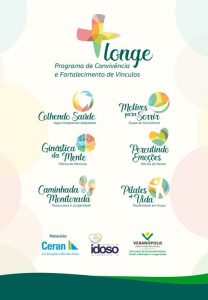Program for Coexistence and Strengthening of Bonds + Away



We developed six distinct projects that favored the development and maintenance of important skills for the physical and emotional health of the elderly, such as: Reaping Health, Gymnastics of the Mind, Percussing the Emotions, Pilates, Monitored Walking, Reasons to Smile.
Behavioral changes are noticeable in the elderly who have participated in the activities reported here, especially in relation to social situations. We perceive the satisfaction at each meeting between the participants who seek to understand the state of health of one or even the resolution of a situation experienced by another. Many report the gains in health referring disposition, reduction of pain and others even talk about reduction of medications. Soon more will be carried out the evaluations in writing, where we will have an important return in relation to the work done so far.
Main target group: Vulnerable older people (e.g. at risk or victims of abuse, living alone, poor etc.)
Sector(s): Social protection
Desired outcome for older people:
Build and maintain relationships